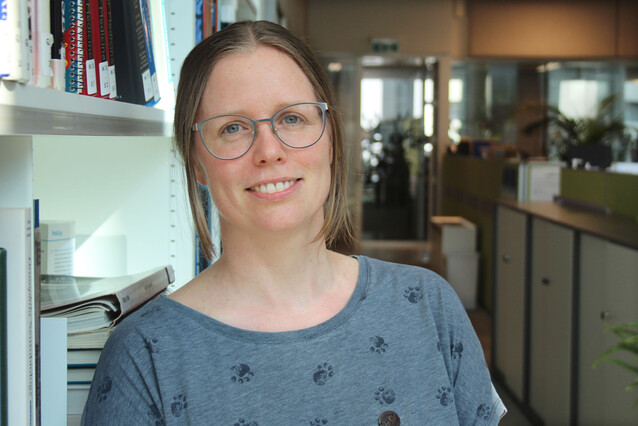Postdoc Julia Leodolter joins the ESPRIT Programme
Julia Leodolter, postdoc in the lab of Tim Clausen, will take part in the Austrian Science Fund’s (FWF) ESPRIT Programme. The programme supports promising postdocs with three years of research funding and career development opportunities.
Julia Leodolter studied molecular biology at the University of Vienna and got to know the IMP during her Master’s studies. For her thesis with Tim Clausen, she investigated protein quality control mechanisms that cells employ to stay healthy.
She continued this line of research with a PhD in the lab of Eilika Weber-Ban at ETH Zurich, Switzerland. There, she studied the function, assembly, and substrates of the Clp system, a protein recycling machinery found in mycobacteria such as Mycobacterium tuberculosis, the pathogen that causes tuberculosis.
In 2016, Julia Leodolter brought her expertise in microbial protein quality control back to the IMP to start a postdoc with Tim Clausen. Building on her work on mycobacteria, she is now using gram-positive bacteria as models. In the frame of her postdoctoral research, she aims to understand how the McsB kinase, an enzyme, tags unwanted proteins with a phosphate at an arginine residue (pArg) that sentences them to be destroyed. pArg-tagged proteins are recognised and degraded by the cellular machinery.
“I want to adapt the BacPROTAC technology developed at the IMP to target essential proteins through the McsB kinase system. BacPROTACs would bind the target and bring it to the kinase. If degradation is effective, the bacteria would die,” she explains. “In the long term, the idea is to design antimicrobial compounds that affect gram-positive bacteria, from the model Bacillus subtilis to the pathogen Staphylococcus aureus.”
The FWF’s ESPRIT Programme will support this project for the next three years and provide Julia Leodolter with many networking and career development opportunities. “I finished revising my application to the programme while I was on my second maternity leave – it has been a challenging ride, but I feel very grateful that the FWF supports my research ideas.”
Further reading
